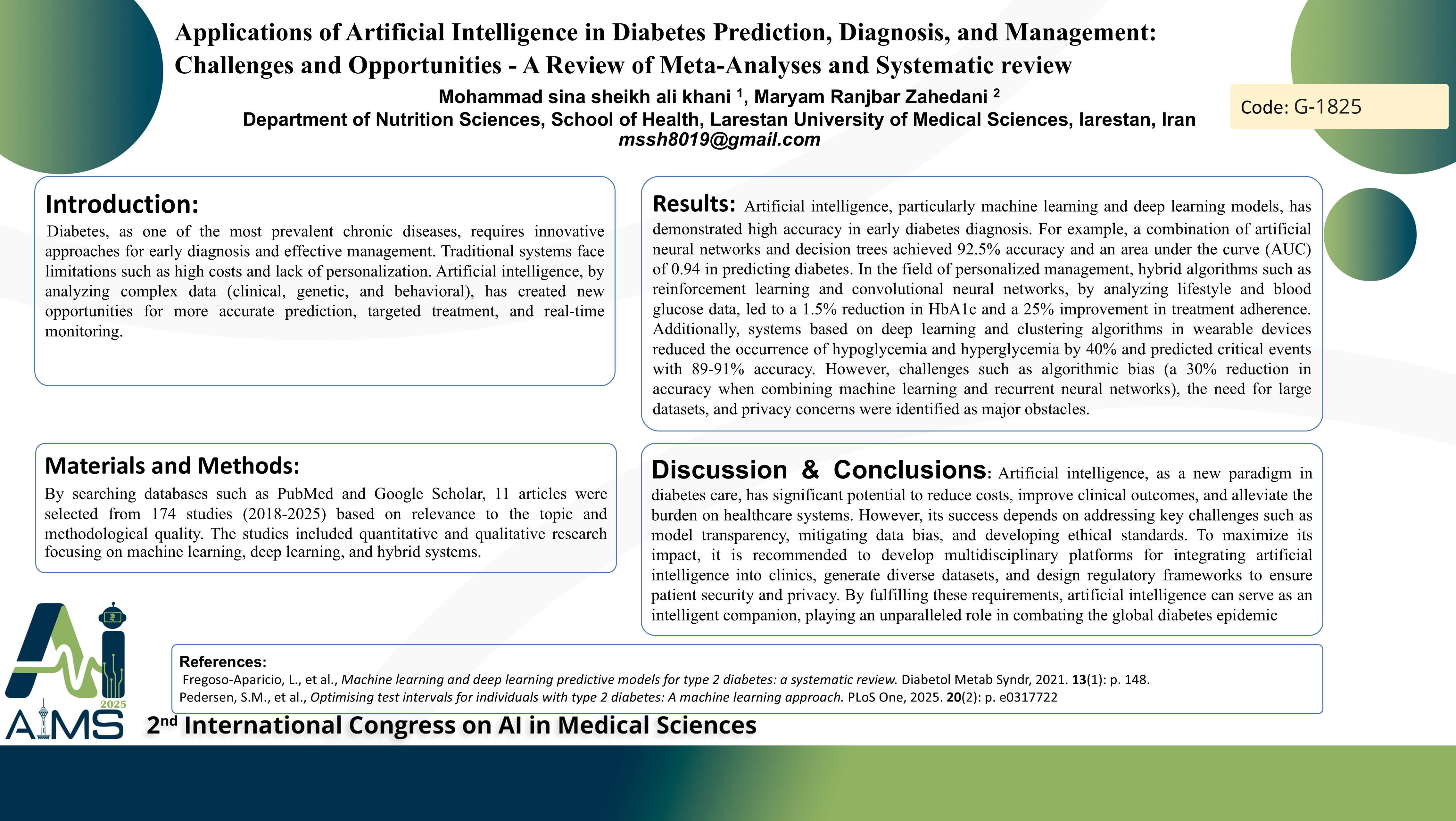Applications of Artificial Intelligence in Diabetes Prediction, Diagnosis, and Management: Challenges and Opportunities - A Review of Meta-Analyses and Systematic review
Code: G-1825
Authors: Mohammad Sina Sheikh Ali Khani * ℗, Maryam Ranjbar Zahedani
Schedule: Not Scheduled!
Tag: Clinical Decision Support System
Download: Download Poster
Abstract:
Abstract
Background and aims: Diabetes, as one of the most prevalent chronic diseases, requires innovative approaches for early diagnosis and effective management. Traditional systems face limitations such as high costs and lack of personalization. Artificial intelligence, by analyzing complex data (clinical, genetic, and behavioral), has created new opportunities for more accurate prediction, targeted treatment, and real-time monitoring. Method By searching databases such as PubMed and Google Scholar, 11 articles were selected from 174 studies (2018-2025) based on relevance to the topic and methodological quality. The studies included quantitative and qualitative research focusing on machine learning, deep learning, and hybrid systems. Results: Artificial intelligence, particularly machine learning and deep learning models, has demonstrated high accuracy in early diabetes diagnosis. For example, a combination of artificial neural networks and decision trees achieved 92.5% accuracy and an area under the curve (AUC) of 0.94 in predicting diabetes. In the field of personalized management, hybrid algorithms such as reinforcement learning and convolutional neural networks, by analyzing lifestyle and blood glucose data, led to a 1.5% reduction in HbA1c and a 25% improvement in treatment adherence. Additionally, systems based on deep learning and clustering algorithms in wearable devices reduced the occurrence of hypoglycemia and hyperglycemia by 40% and predicted critical events with 89-91% accuracy. However, challenges such as algorithmic bias (a 30% reduction in accuracy when combining machine learning and recurrent neural networks), the need for large datasets, and privacy concerns were identified as major obstacles. Conclusion: Artificial intelligence, as a new paradigm in diabetes care, has significant potential to reduce costs, improve clinical outcomes, and alleviate the burden on healthcare systems. However, its success depends on addressing key challenges such as model transparency, mitigating data bias, and developing ethical standards. To maximize its impact, it is recommended to develop multidisciplinary platforms for integrating artificial intelligence into clinics, generate diverse datasets, and design regulatory frameworks to ensure patient security and privacy. By fulfilling these requirements, artificial intelligence can serve as an intelligent companion, playing an unparalleled role in combating the global diabetes epidemic
Keywords
Artificial Intelligence, Diabetes, Management, Machine Learning
